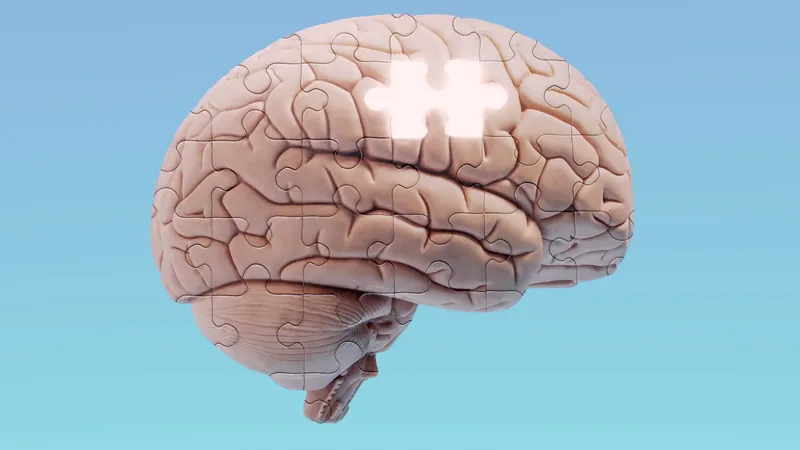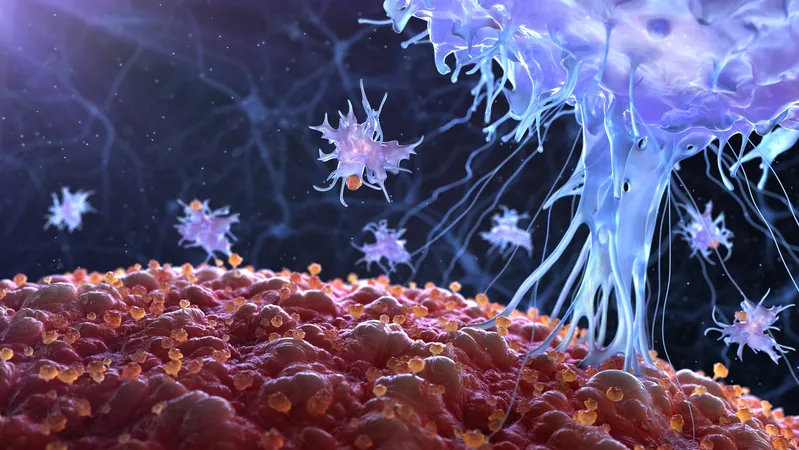
Is Your Brain Truly Running Out of Space? Here’s the Surprising Truth!
2025-07-14
Author: Ming
You’ve probably experienced the panic of forgetting something important, wondering if your brain might just be too full. But can we really fill our brains like a phone or computer? Not quite—scientists say it’s much more complex.
According to Elizabeth Kensinger, a psychology and neuroscience professor at Boston College, a healthy brain doesn’t have a fixed limit for memory storage. "There isn't a meaningful limit to how much information the brain can store," she reassures us. Instead, memories serve as tools for understanding the present, predicting the future, and facilitating learning.
Here’s the kicker: our memories aren’t just sitting neatly in a single file. Each memory, like the joyous recollection of your 12th birthday party, is scattered across a vast network of neurons—known as an engram. Various parts of your brain work together, firing in a unique pattern when you recall that special day, blending senses and emotions.
This distributed representation is a clever strategy that vastly increases our brain's memory capacity. Paul Reber, a neuroscience professor from Northwestern University, explains that the possible combinations grow exponentially, allowing us to store a seemingly infinite number of memories.
So Why Don't We Remember Everything?
If our brains are capable of so much, why do we forget? The answer lies in the sheer speed of life. Our memory systems process information at a much slower pace than reality flows, capturing only a fraction of experiences for long-term storage. Think of it like a video camera that only works at 10%; you're lucky to remember about one out of every ten experiences.
Reber highlights that the bottleneck isn’t in memory space, but in the storage process itself—called consolidation—where memories are gradually formed and made durable over time.
What Shapes Our Memories?
Life bombards our brains with overwhelming amounts of information, but we don’t need to remember it all. Our memory system evolved not for perfect recall but for survival, focusing on what’s adaptive and necessary. Lila Davachi, a professor at Columbia University, states, "The memory system is built to only encode what is adaptive and necessary."
Interestingly, we have an extra capacity for nostalgia—remembering deep details from our college days, even if they aren’t crucial for our daily survival.
Kensinger explains that this efficiency leads our brains to generalize information rather than keep every minute detail. For instance, you likely don’t remember every single trip to work; only those that stand out due to unique events.
So when you find yourself searching for your coffee cup, don’t fret! Your brain isn’t running out of space; it’s just juggling what’s truly important. Our minds continuously adapt, enabling us to learn and navigate our world effectively.




 Brasil (PT)
Brasil (PT)
 Canada (EN)
Canada (EN)
 Chile (ES)
Chile (ES)
 Česko (CS)
Česko (CS)
 대한민국 (KO)
대한민국 (KO)
 España (ES)
España (ES)
 France (FR)
France (FR)
 Hong Kong (EN)
Hong Kong (EN)
 Italia (IT)
Italia (IT)
 日本 (JA)
日本 (JA)
 Magyarország (HU)
Magyarország (HU)
 Norge (NO)
Norge (NO)
 Polska (PL)
Polska (PL)
 Schweiz (DE)
Schweiz (DE)
 Singapore (EN)
Singapore (EN)
 Sverige (SV)
Sverige (SV)
 Suomi (FI)
Suomi (FI)
 Türkiye (TR)
Türkiye (TR)
 الإمارات العربية المتحدة (AR)
الإمارات العربية المتحدة (AR)